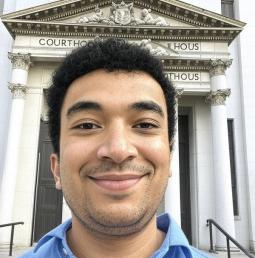BREAKING - Florian Fasko Drugs Investigation Update:
Illegal Drug Investigation Update
Albanian immigrant Florian Fasko, who was previously convicted and sentenced in 2019 for cannabis production and possession of false ID, was also later charged in 2024 in connection with another major drugs investigation, however that case has now recently been discontinued by the CPS.
Access to the Law: What Does It Mean When a Case Is Discontinued?
In this case, the investigation into Florian Fasko was discontinued by the Crown Prosecution Service (CPS) under Section 23 of the Prosecution of Offences Act 1985. This is a formal process that ends the prosecution before trial, meaning the defendant is no longer required to attend court.
Discontinuance is not the same as a case being “dropped.” It does not imply that the person has been found innocent, nor does it amount to an acquittal. The CPS may decide not to proceed for any number of reasons, including evidential or procedural issues, problems with witness availability, or public interest factors.
Importantly, a discontinued case can be reinstated at a later date if new evidence emerges or if the decision to discontinue is found to have been made in error. This legal mechanism allows the CPS to end proceedings without permanently ruling out future prosecution.
Well, that’s all for now. But until our next article, please stay tuned, stay informed, but most of all stay safe, and I’ll see you then.
Editorial Footnote:
We are now further given to understand, though not yet in receipt of evidential confirmation, that Mr. Florian Fasko may have been the subject of a Positive Conclusive Grounds decision under the United Kingdom’s National Referral Mechanism (NRM), a statutory framework for the formal identification and safeguarding of individuals who are determined to have been victims of modern slavery and human trafficking.
Should verifiable documentation of such status be formally provided to us, it would constitute a materially relevant consideration in evaluating the broader humanitarian and legal context in which Mr. Fasko’s 2019 conviction for cannabis production and possession of false identification occurred. While a Positive Conclusive Grounds decision does not in and of itself nullify or expunge a prior conviction, it may serve to significantly mitigate the perceived moral or criminal culpability underpinning the offending conduct.
In the interests of transparency, editorial fairness and legal good faith, we therefore acknowledge that, were such a status to be substantiated by evidentiary means, it would be our intention to consider amending the editorial record further to reflect this contextual factor. This shall be done, if necessary, without prejudice to the accuracy and lawfulness of our original and subsequent publications, which were grounded upon official charging information released by West Midlands Police into the public domain and accurate at the time of dissemination.
Legal Status of the 2019 Conviction
We must further clarify that, in the absence of any formal legal process leading to the quashing, setting aside, or otherwise vacating of the 2019 conviction by a competent judicial authority, said conviction remains valid and extant under English law.
As such, its existence continues to reside within the public domain and is not protected by any reporting restrictions or rehabilitative anonymisation under the Rehabilitation of Offenders Act 1974, so long as it remains unspent and materially relevant to contemporaneous matters of legitimate public interest—such as subsequent criminal proceedings, regardless of their eventual outcome.
Consequently, the editorial reference to this conviction for cannabis production by Florian Fasko, made without embellishment or gratuitous inference, is lawful, factually accurate, and firmly within the scope of permissible journalistic activity as safeguarded under Article 10 of the European Convention on Human Rights and relevant domestic jurisprudence.
This includes our public interest duty to provide contemporaneous updates to coverage and contextualise legal developments, particularly when serious organised crime investigations are concerned.
We reiterate that our willingness to append contextual clarification, where merited by properly substantiated documentation, shall not be construed as an admission of editorial error but rather as a demonstration of our ongoing commitment to principled reporting in accordance with both legal obligations and journalistic ethics.






